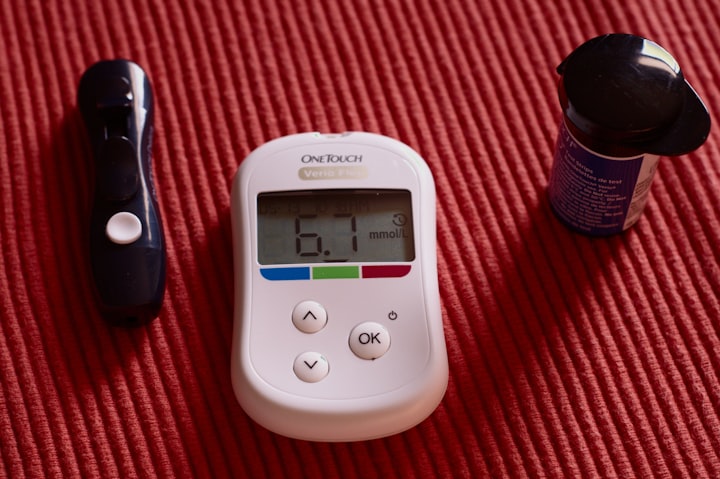You Can Prevent and Manage Hypertension and Diabetes Through Nutrition
Harnessing the Healing Power of Nutrition to Combat Hypertension and Diabetes
Introduction:
In today's fast-paced and often stressful world, chronic health conditions such as hypertension and diabetes have become increasingly prevalent. These conditions not only impact our quality of life but also pose significant health risks. However, the good news is that through proper nutrition and dietary choices, we have the power to prevent and manage these conditions effectively. In this article, we will explore the role of nutrition in preventing and managing hypertension and diabetes, providing valuable insights into how you can take control of your health.
Understanding Hypertension and Diabetes:
Hypertension, or high blood pressure, occurs when the force of blood against the artery walls is consistently too high. It is often referred to as the "silent killer" due to its lack of noticeable symptoms. On the other hand, diabetes is a metabolic disorder characterized by high blood sugar levels resulting from either insufficient insulin production (Type 1) or ineffective insulin utilization (Type 2).
Prevention and Management through Nutrition:
1. Emphasize a Balanced Diet:
A balanced diet plays a crucial role in preventing and managing both hypertension and diabetes. Focus on consuming a variety of fruits, vegetables, whole grains, lean proteins, and healthy fats. This helps provide essential nutrients while reducing the risk of nutrient deficiencies.
2. Limit Sodium Intake:
Excess sodium consumption can contribute to high blood pressure. Reduce your intake of processed and packaged foods, which tend to be high in sodium. Instead, opt for fresh, whole foods and use herbs, spices, and other flavorings to enhance taste.
3. Control Carbohydrate Intake:
For individuals with diabetes, managing carbohydrate intake is essential to regulate blood sugar levels. Choose complex carbohydrates, such as whole grains, legumes, and vegetables, over-refined sugars, and processed foods. Spreading out carbohydrate intake throughout the day can also help maintain stable blood sugar levels.
4. Monitor Portion Sizes:
Controlling portion sizes is vital for managing both hypertension and diabetes. Use smaller plates and bowls to help maintain portion control. Pay attention to hunger and fullness cues, and avoid overeating.
5. Incorporate Heart-Healthy Fats:
Opt for heart-healthy fats, such as those found in avocados, nuts, seeds, and olive oil. These fats can help lower blood pressure and improve insulin sensitivity. However, be mindful of portion sizes, as fats are calorie-dense.
6. Increase Fiber Intake:
A high-fiber diet offers numerous benefits for hypertension and diabetes management. Fiber-rich foods, including whole grains, fruits, vegetables, and legumes, help control blood sugar levels, improve cholesterol profiles, and promote overall heart health.
7. Limit Added Sugars:
Excessive consumption of added sugars can lead to weight gain, increased blood sugar levels, and elevated blood pressure. Minimize the intake of sugary beverages, desserts, and processed snacks. Opt for naturally sweet alternatives like fresh fruit.
8. Stay Hydrated:
Proper hydration is essential for maintaining overall health. Drink an adequate amount of water throughout the day and limit sugary drinks and excessive caffeine consumption.
9. Seek Professional Guidance:
If you have hypertension or diabetes, it is crucial to work closely with a healthcare professional or a registered dietitian. They can help develop a personalized nutrition plan tailored to your specific needs and provide ongoing support and guidance.
Conclusion:
In conclusion, nutrition plays a pivotal role in preventing and managing hypertension and diabetes. By making conscious choices about the foods we consume, we can take control of our health and improve our overall well-being. Small changes in our daily diet, such as reducing sodium intake, controlling portion sizes, and opting for nutrient-dense foods, can have a significant impact. It is essential to seek guidance from healthcare professionals and registered dietitians who can provide personalized recommendations and support along the way. Remember, your journey to better health starts with the power of nutrition.
References:
About the Creator
Abdul Jamil Nasir
Unlock the World's Insights: Join Abdul Jamil Nasir Share as he brings you the most captivating & trending information from every corner of the globe. With Abdul Jamil's unparalleled coverage & exclusive stories, stay ahead of the curve.







Comments
There are no comments for this story
Be the first to respond and start the conversation.